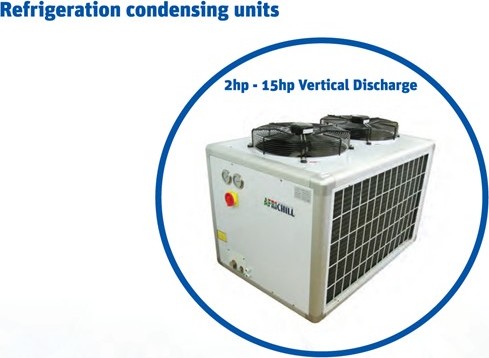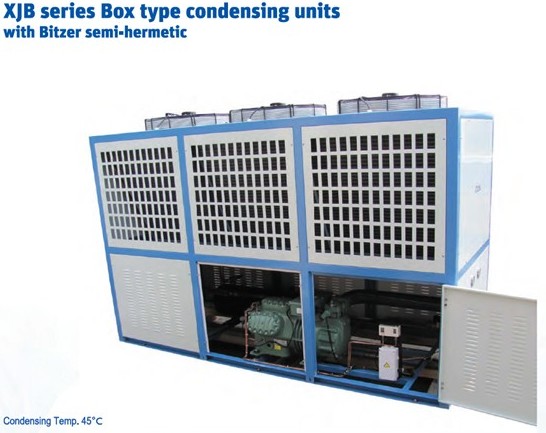Condensing units are the unsung heroes of modern cooling and refrigeration systems. While they may not be the most conspicuous components, these vital devices play a crucial role in maintaining the efficiency and functionality of various cooling and refrigeration applications. Today, we will delve into the world of such units, exploring their functions, significance, and how they keep our environments cool and our perishables fresh.

Understanding the Basics: What Are Condensing Units?
A condensing unit is a fundamental part of a refrigeration or air conditioning system. It consists of several key components, including a compressor, a condenser coil, a fan, and a motor. The primary purpose of a condensing unit is to facilitate heat exchange and remove heat from the system, which is essential for maintaining the desired low temperature.
The Role of the Compressor
The compressor within a condensing unit is often considered the heart of the system. Its function is to compress and circulate refrigerant gas throughout the cooling system. As the gas is compressed, it becomes hot and high-pressure. The refrigerant then flows to the condenser coil.
Heat Exchange in the Condenser Coil
The condenser coil is a vital part of the condensing unit responsible for removing heat from the compressed refrigerant gas. The hot gas enters the condenser coil, where it releases heat and transforms back into a high-pressure liquid. This phase change is crucial because it enables the refrigerant to release the heat it absorbed from the interior space or the refrigerated goods. The condenser coil is usually located outside the building or inside the refrigeration system.
Assisting Fans and Motors
To facilitate the heat exchange process, condensing units are equipped with fans and motors. These components help to dissipate the heat absorbed by the refrigerant into the surrounding environment. The fan draws air across the condenser coil, promoting the release of heat into the atmosphere. The motor powers the fan to ensure efficient airflow.
Importance of Condensing Units
The condensing unit is indispensable for several reasons:

Temperature Control: They help maintain the desired temperature within refrigeration and air conditioning systems. By removing heat from the system, they ensure that the space or perishables remain at the desired temperature.
Energy Efficiency: Modern units are designed for energy efficiency. They are equipped with advanced technologies that minimize energy consumption while maximizing cooling performance.
Environmental Impact: Energy-efficient units contribute to lower energy consumption, reducing the environmental impact of cooling systems. Some models are also designed to use eco-friendly refrigerants, further minimizing their carbon footprint.
Reliability: Properly maintained units are known for their reliability and durability. They can withstand a range of environmental conditions, making them suitable for various applications.
Versatility: Condensing unit is versatile and used in a wide range of applications, from residential air conditioning systems to large-scale industrial refrigeration.
Condensing units from AFRICHILL may not be the most visible components of cooling and refrigeration systems, but they are undeniably the heart of the operation. Their ability to remove heat efficiently and control temperature is essential for preserving the freshness of food, maintaining comfortable indoor environments, and sustaining various industrial processes. As technology advances, such units continue to play a central role in the evolution of cooling and refrigeration, contributing to increased efficiency and environmental sustainability in these systems. Call them at +27 (0) 11 396 2402 to discuss your requirements.

No comments:
Post a Comment